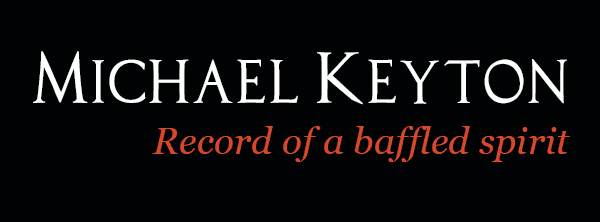
The picture shows Owen Thomas Parry in his engineering works which was situated in Melling, just behind Aintree Racecourse. He underestimated the advantages of new technology and the business went under.
This is a picture of Owen Parry, our grandfather - a young man during the Great War. The horse I think is the one that died as it lay on top of him.
Our great grandfather was Owen Thomas Parry born 1864 and in that same year Abraham Lincoln established Thanksgiving as America’s National Holiday. The two are not necessarily related. Owen Thomas Parry died aged 52 December 16th 1916.
As far as I know, he served in no war, though it must be said great things were happening in the American Civil War the year he was born. Ulysses S Grant and General Sherman were busy marching up and down the eastern seaboard, burning stuff and killing people.
Kit Carson was busy killing Kiowa, but met his match with the Comanche.
General John Sedgwick was shot and killed by a confederate sharpshooter during fighting at Spotsylvania, Va. His last words before getting hit were "They couldn't hit an elephant at this distance."
Europe had a war, one peculiar to itself, over Schleswig Holstein, most easily pronounced when drunk or when suffering from a cold. Lord Palmerston, our Prime Minister summed it up. ‘There were only three people who ever understood Schleswig Holstein: King Frederick of Prussia, a German professor, and myself. King Frederick is dead. The Professor is half mad, and I have forgotten it.'
So back to America.
Colonel John M. Chivington, attacked an unsuspecting village of Cheyenne and Arapahoe Indians camped on Sand Creek and killed some 300 Indians including women and children, many of whose bodies were mutilated.
General George Armstrong Custer married Elizabeth Bacon in 1864 and died at the battle of Little Big Horn when our great grandfather was twelve.
In Europe too exciting things were happening.
Charing Cross Station opened in London and in the Netherlands Gerard Adriaan Heineken founded a beer brewery. In 2002 it was the world’s 3rd largest.
I think, what a great time to be alive. I grew up loving the myth of the 'wild west' especially as whenI grew older I discovered the reality wasn' t much different! The problem, I suppose was the price that was paid. I think we have an ancestor who lost his leg at Fort Pickens - wherever that was. So, I don't know whether our great grandfather ever fought in a war. I hope he didn't. His son and grandson did.
When Owen Thomas Parry died, his son, Owen Parry was serving in the Artillery in World War I. I haven’t yet found out whether he was home for the death of his father, or he got a telegram, which would have been unusual, because it was usually the other way round.
Owen Parry, our grandfather told many stories of life in the trenches, none of them pleasant. There are two that stick in the mind one of which continued to upset him many years later. He was holding his horse by the reins, quietening him as the shells whistled past. The next moment a shell hit the horse knocking it over on top of my granddad. He was trapped, unable to move, still holding on to the horse’s neck. What upset my grandfather (and me when I think of it) was the horse’s eye, inches from his own, looking at him, its light fading as it slowly died.
It’s a small example of how the personal becomes tragedy as opposed to statistics - or the unknown. I have one particular example. When he was clambering over his trench something wet and sticky slapped across his face. Instinctively his hand went up to rub it off only to find it was flesh and skin - someone else’s.
Good boots were in short supply and German boots were noted for their quality. Soldiers saw nothing wrong in taking the boots from a dead German, though it became unpleasantly surreal when there was only a leg, the rest of the body having been pulverised by shrapnel or shell.
Our granddad's final battle war was terminal. He didn't want to go and put up a damned good fight. He'd outlived two pacemakers - didn't mind the operations but hated the hospitals and the petty indignities. He hated the bed-pan, much preferring the toilet. One night he caused a degree of mayhem. The problem he had to solve, was this. He was wired up to various monitors assessing various bodily functions. It was the middle of the night. Very patiently he 'numbered'his body with a ball point pen, each number corresponding to something specific attached to his body. The idea was that he would be able to re-attach the wires to the correct place when he returned from the toilet. When the job was done he tore off the wires and leapt out of bed in an old man's version of 'The Great Escape'. Alarms sounded and he was caught, much to his indignation, halfway down the ward.
I grew up knowing a cheerful, feisty, possibly wilful but always generous old man. I know there was a darker side, but it's not my job to tell that story.
I'll finish the topic tomorrow with the story of John Parry and the war in Korea.


No comments:
Post a Comment